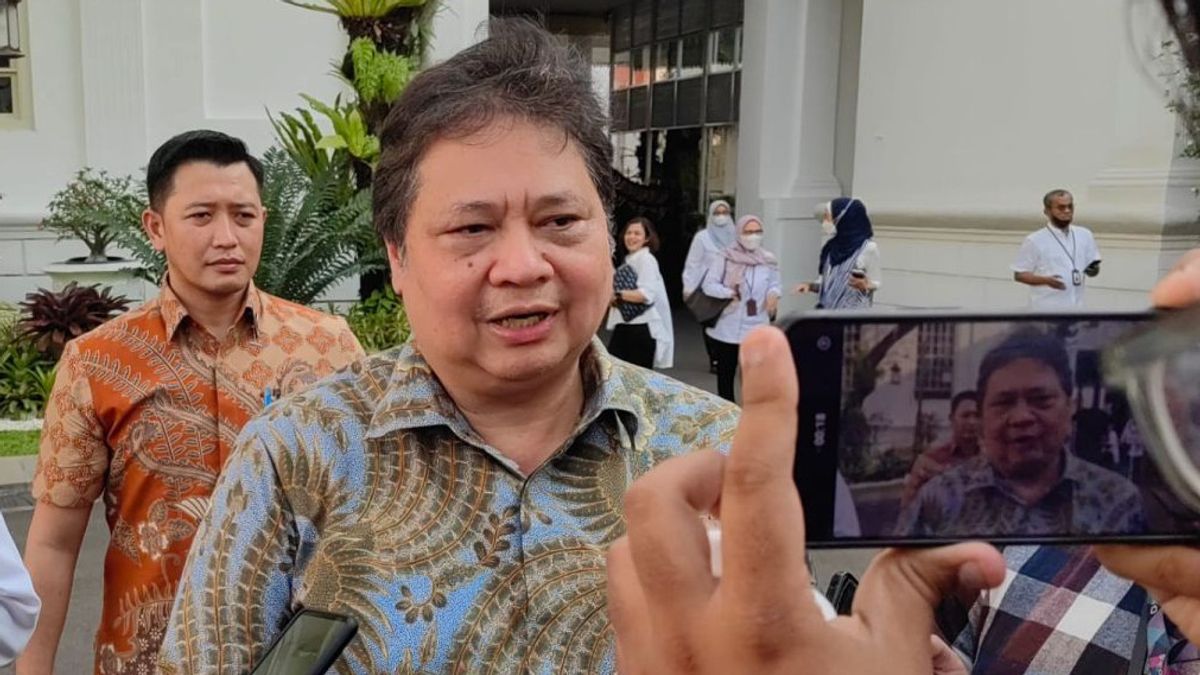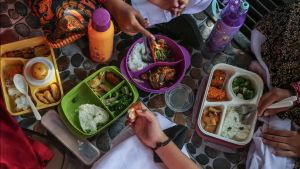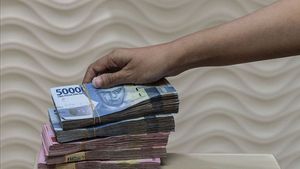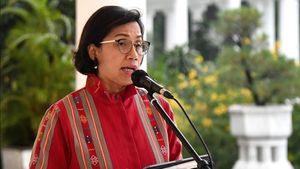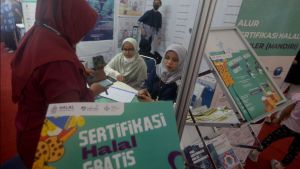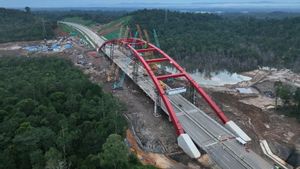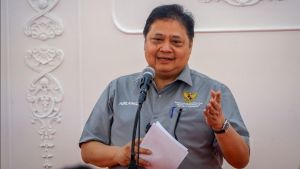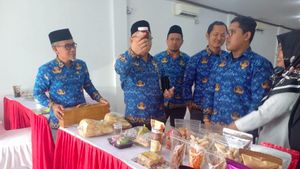JAKARTA - Coordinating Minister for Economic Affairs Airlangga Hartarto said, Indonesia has two opportunities in developing a green economy.
"Our economy has transformed into a sustainable green economy, balancing the economic, social and environmental aspects in line with the SDGs target, Paris Agreement, and after the 2045 Golden Indonesia Vision and the 2060 NZE target," said Airlangga as quoted by ANTARA, Wednesday, July 3.
The first opportunity is that Indonesia's economic activity in the energy sector is currently focused on transitioning to new and renewable energy (EBT).
Transition efforts are carried out through the application of solar, wind, water or hydro, and biomass energy.
According to Airlangga, Indonesia's current energy policy is directed at reducing carbon emissions from Steam Power Plants (PLTU) through a combination of ammonia and Carbon Capture Storage (CCS).
"Furthermore, the EV e-mobility ecosystem needs to be encouraged and this of course reduces greenhouse gases (GHG) due to fuel exposure," said Airlangga as quoted by ANTARA, Wednesday, July 3.
He assessed that the development of the Roadmap & National Action Plan for the Indonesian Circuit's Economy 2025-2045 and the Roadmap for Susut Management and Food Remaining to Support the Achievement of Food Security Towards Golden Indonesia 2045 will also help the industry in Indonesia.
"Today 152 companies have green certificates, and of course in the future we hope to increase," he explained.
Then, Indonesia's second chance is the birth of new economic growth from various circular economic activities including natural resource-based industries (SDA) that are sustainable to the blue economy.
Airlangga said that the development of 22 Special Economic Zones (SEZs) is also one of the efforts to develop circular economic principles that can bring in green investment.
He added that the impact of green economy innovation can also be felt by micro, small and medium enterprises (MSMEs), which are currently digitalized 22.5 million.
"It is hoped that it can develop its business with assistance and funding so that it can become a middle or even large-class business," he concluded.
The Ministry of National Development Planning/National Development Planning Agency (PPN/Bappenas) has launched the Roadmap & National Action Plan for the Indonesian Circuit 2025-2045 and the Roadmap for Susut Management and Food Remaining in Support of Food Security Achievement Towards Indonesia Gold 2045.
"Through cooperation with various parties, a roadmap and circular economic action plan have been arranged, as well as a roadmap for decreasing aftershocks and food remains launched today," said Minister of National Development Planning/Head of Bappenas Suharso Monoarfa.
Based on the National Long-Term Development Plan (RPJPN) 2025-2045, Indonesia is committed to overcoming climate change by preserving natural resources and the environment so that future generations will benefit from these efforts.
SEE ALSO:
Therefore, the decrease in the intensity of greenhouse gas (GHG) emissions towards the Net Zero Emission (Net Zero Emission) is carried out through a green economy based on low-carbon and climate-resilient development.
As one of the strategies to realize a green economy, the circular economy will encourage the implementation of 9R (Refuse, Rethen, Reduce, Reuse, Repair, Refurbish, Remanufacture, Repurpose, and Recycle) which includes interventions throughout the value chain.
The English, Chinese, Japanese, Arabic, and French versions are automatically generated by the AI. So there may still be inaccuracies in translating, please always see Indonesian as our main language. (system supported by DigitalSiber.id)
